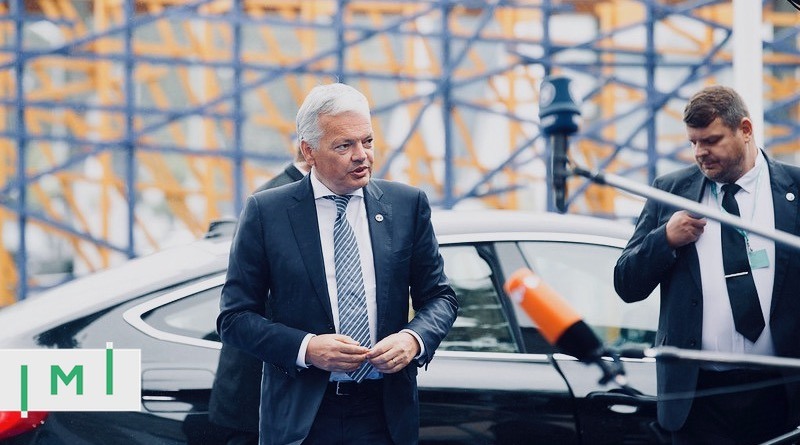European Commission to “Analyze” Malta’s CIP Extension Plans
During a phone call with Maltese Interior Minister Byron Camilleri this summer, European Commissioner for Justice Didier Reynders reportedly requested to see Malta’s draft proposals for its revamped citizenship by investment program, slated to replace the Malta Individual Investor Programme (MIIP) this year. IMI understands that the new program is now only awaiting political approval before it can take effect.
A spokesperson for the European Commission explained that the body plans to review Malta’s proposal, devoting particular attention to the degree to which it satisfies AML/KYC concerns and, generally, complies with EU law.
The Commission’s chief concern remains the absence of genuine links, explained Peter Agius, a former Member of the European Parliament, himself from Malta.
“[…]the lack of any possibility to verify a genuine link of the applicant with the Maltese islands is the root of the problem,” Agius told the Malta Independent. “Malta has all the right to assign citizenship by investment, but this should follow a verifiable genuine link between the applicant and the country. The newly publicized reforms do not address these concerns as citizenship can still be achieved after a one-year residence, apparently with just 15 days of actual physical presence.”
The European Commission’s spokesperson acknowledged that deciding whom to naturalize remained within the exclusive purview of sovereign states, but also pointed out that such proceedings must still “have due regard to Union Law.”
The spokesperson also reiterated the Commission’s commitment to take legal action if necessary.
“Commissioner Reynders has been in contact with the three Member States [that operate CIPs, i.e., Malta, Cyprus, and Bulgaria] and has raised these concerns directly. Due to the nature of EU citizenship, such schemes have implications for the Union as a whole. The Commission is looking at compliance with EU law, and will introduce infringement proceedings, if judged necessary.”
In her first State of the Union address earlier this month, President of the European Commission, Ursula von der Leyen, issued a stark warning to European CIPs, commenting that “European values are not for sale” and that “breaches of the rule of law cannot be tolerated.” Von der Leyen did not specify how she believed European CIPs were in the business of selling values, nor how they had breached the rule of law.
For several years, the Commission has lamented the lack of what’s known as “genuine links” between European countries that have RCBI programs and the investors they naturalize. The genuine link doctrine dates back to the famous 1955 Nottebohm case, heard by the International Court of Justice. In an IMC working paper published last year, Prof. Peter J. Spiro of the Charles R. Weiner Professor of Law, Temple Law School pointed out that “at no time has “genuine link” represented a general rule of international law. The putative doctrine has a poor track record in subsequent international proceedings (including before the European
Court of Justice).
See also: The Virus Will Bring About What The European Commission Couldn’t: Genuine Links
The European Commission’s interpretation of “genuine links” differs from that of Malta. While the latter considers the acquisition or establishment of a residency in the country a sufficient criterion, the Commission has argued that more is needed, specifically a longer period of physical presence.
While the Commission wants to see EU member states naturalize only those who have physically resided in the country for several years, that is precisely what CIPs cannot ask of their participants. A central utility of citizenship by investment is that it grants nationality while waiving ordinary residency period requirements. Removing that advantage, therefore, would effectively eliminate CIPs’ raison d’être.
Expert group not including industry stakeholders
The Commission’s spokesperson also said an expert group had been established to consider the transparency, governance, and security of investor schemes in the EU. “The expert group is currently working on a common set of security checks for such schemes.”
That expert group does not include the Investment Migration Council, the industry’s main advocacy group, confirms its chief executive Bruno L’ecuyer to IMI. Questioned as to the constituents of the expert group, L’ecuyer said he wasn’t aware of its existence. “It may be an internal working group,” he added. “They certainly have not requested our participation.”
The Commission might have saved itself a great deal of work by including the IMC in such discussions, considering the association has published a variety of reports and standards-frameworks with the express purpose of establishing common vetting standards and best practices for such programs, a body of work of which the Commission is well-aware.
“In January this year,” says L’ecuyer, “we published Due Diligence in Investment Migration: Best Approach and Minimum Standard Recommendations, in cooperation with BDO, Exiger, and Refinitiv, three of the world’s leading due diligence companies.”
Christian Henrik Nesheim is the founder and editor of Investment Migration Insider, the #1 magazine – online or offline – for residency and citizenship by investment. He is an internationally recognized expert, speaker, documentary producer, and writer on the subject of investment migration, whose work is cited in the Economist, Bloomberg, Fortune, Forbes, Newsweek, and Business Insider. Norwegian by birth, Christian has spent the last 16 years in the United States, China, Spain, and Portugal.



